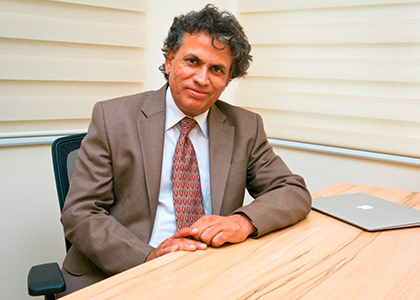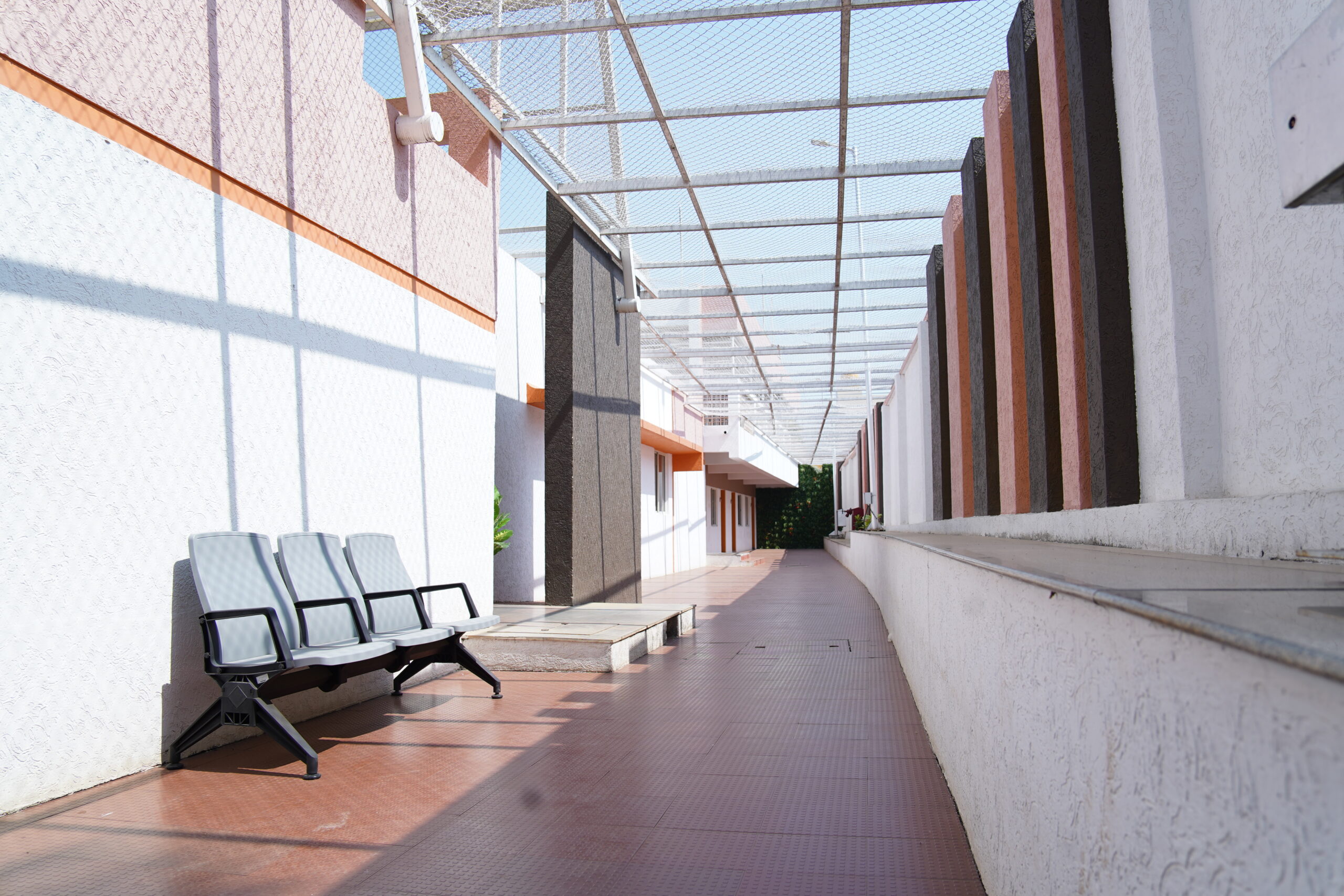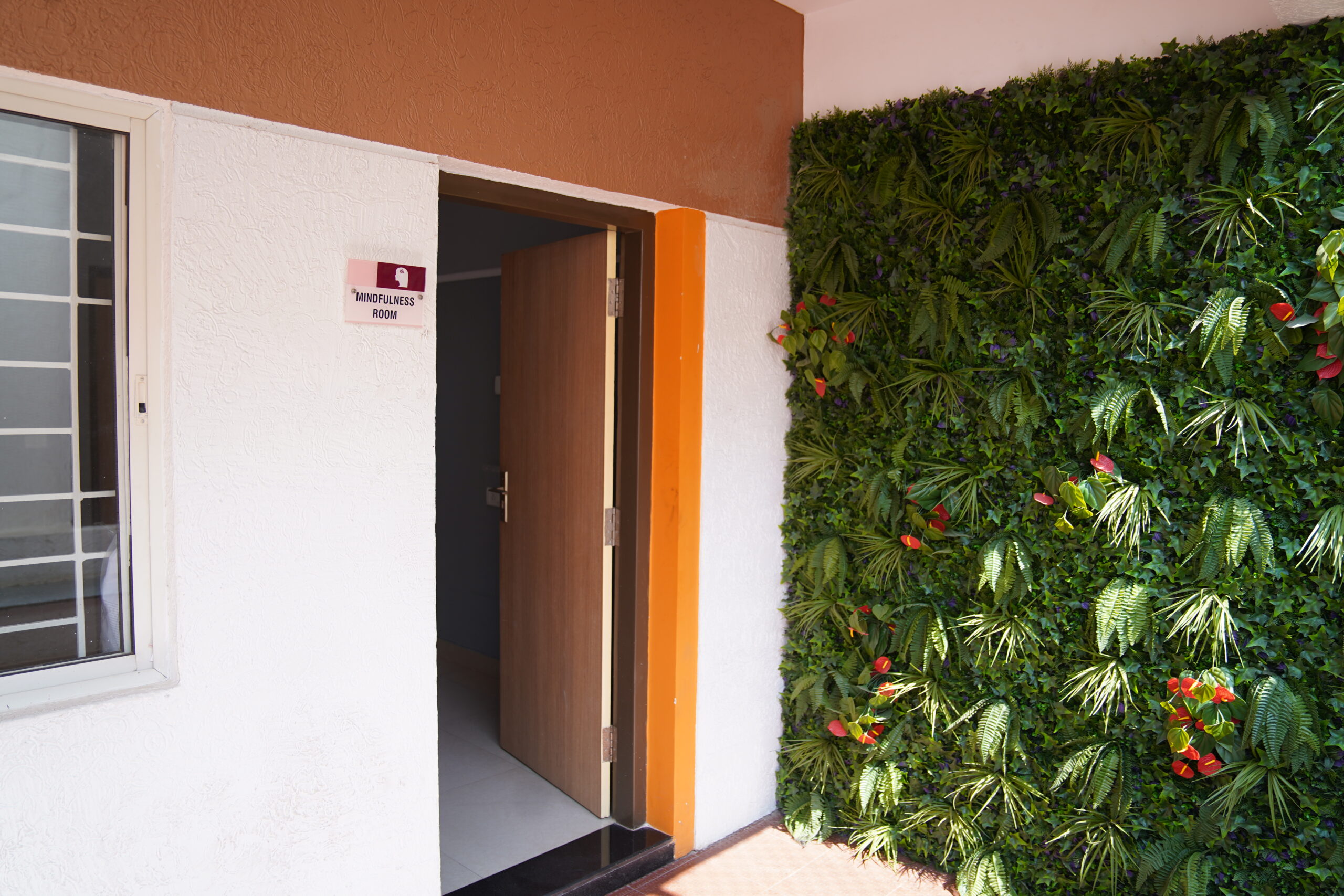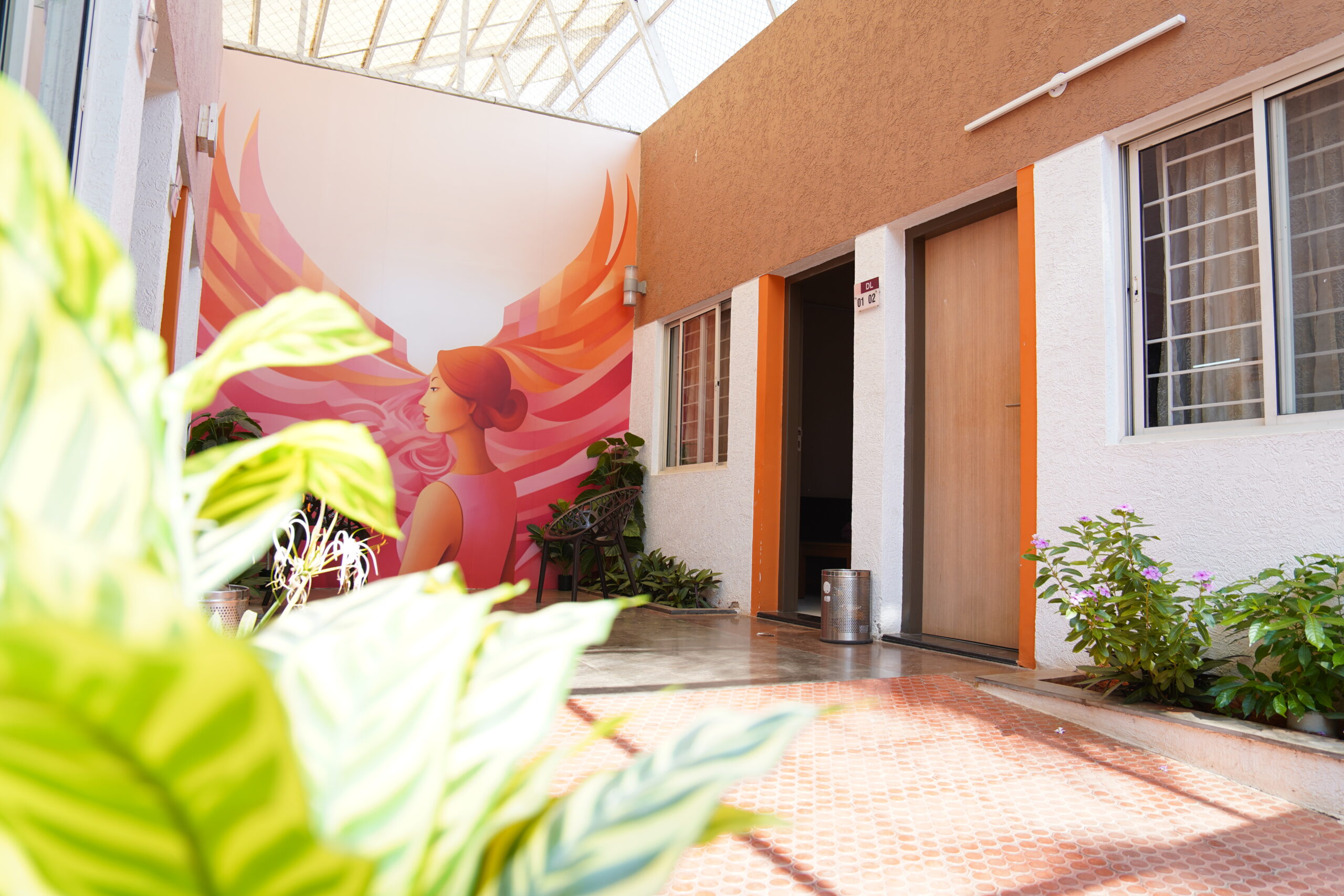What is Biofeedback Therapy?
Biofeedback therapy uses sensors to monitor physiological processes like heart rate and muscle tension, providing real-time feedback to help individuals learn techniques for overall wellness.
It empowers individuals by teaching them self-regulation strategies to manage these responses, ultimately promoting better stress management and reducing cravings. The goal is to equip individuals with tools for long-term recovery and improved overall health, integrating physical and emotional well-being in the journey towards sobriety
The Science Behind Biofeedback
Biofeedback therapy for drug addiction operates on a physiological and psychological approach. It recognises that addiction impacts both mind and body. Through biofeedback, therapists aim to enhance self-awareness of physiological responses such as heart rate, muscle tension and skin conductivity, which are influenced by substance use.
Biofeedback vs. Traditional Therapies
While traditional therapy addresses psychological and behavioural aspects of addiction through various therapeutic techniques like cognitive-behavioural therapy and motivational interviewing, biofeedback uses real-time physiological data to teach self-regulation of stress responses.
Traditional therapy focuses on understanding and modifying underlying causes and behaviours associated with addiction through prolonged interactions. Biofeedback’s technological emphasis allows professionals to gain insights on specific triggers and provide adequate guidance from that point onwards.
Safety and Efficacy of Biofeedback
Biofeedback is a safe therapy when administered by trained professionals. It’s non-invasive and involves sensors to monitor physiological responses like heart rate and muscle tension.
Studies show it can help manage symptoms of drug addiction as well as other conditions related to stress, anxiety and pain. In addition to rehab, biofeedback complements traditional therapies by teaching self-regulation skills. Its effectiveness varies based on individual factors and integration with other treatments.
Looking for trusted psychiatrists in Bangalore? Cadabam’s Hospitals delivers expert, tailored care for a wide range of psychiatric conditions.
How Biofeedback Transforms Drug Addiction Treatment in Bangalore
When administered by licensed experts, biofeedback has the potential to empower individuals with real-time awareness and control over their physiological responses. By monitoring metrics like heart rate variability and skin conductance, biofeedback helps individuals recognise and manage stressors and triggers that contribute to substance use.
This self-regulation training can enhance resilience against cravings and withdrawal symptoms, supporting long-term recovery. That said, biofeedback is usually integrated with various forms of traditional and complimentary therapy to ensure that the person recovers holistically, as per their unique requirements.
The Process of Biofeedback Therapy: What to Expect
Biofeedback therapy typically begins with an assessment of physiological indicators like heart rate variability and skin conductance levels. Therapists educate individuals about these responses and how they correlate with addictive behaviours. Through guided sessions, individuals learn biofeedback techniques such as relaxation exercises and mindfulness practices to modulate these physiological reactions.
Our therapists monitor progress and adjust techniques as needed to support ongoing recovery. The process produces increased self-awareness, stress management skills and a proactive approach to maintaining sobriety.
Benefits of Biofeedback for drug addiction patients
Biofeedback offers drug addiction patients a transformative path to recovery by harnessing awareness of physiological responses. This therapy empowers individuals to manage stress, reduce cravings and enhance overall well-being through personalised techniques and continuous monitoring
Enhances Emotional Regulation and Stress Management
Managing stress and emotions is the key objective of biofeedback therapy. By teaching individuals to monitor and control physiological responses like heart rate and muscle tension, biofeedback equips them with effective tools to mitigate stress triggers and manage emotions, supporting long-term recovery and overall well-being.
Improves Symptom Management
Biofeedback offers drug addiction patients improved symptom management by teaching them to monitor physiological indicators such as heart rate variability and skin conductance. This empowers individuals to recognise early signs of stress and cravings, enabling proactive interventions that enhance symptom control.
Boosts Patient Engagement and Self-Awareness
A key element of biofeedback technology is its ability to provide immediate feedback based on the individual’s reactions. Through real-time feedback on physiological responses like heart rate and muscle tension, this therapy generates active participation in therapy, allowing individuals to understand their body’s reactions to stress and addiction triggers.
How biofeedback complements traditional drug addiction treatments
Biofeedback complements traditional drug addiction treatments by addressing physiological aspects often overlooked in conventional therapies. While traditional therapies focus on addressing the psychological and behavioural aspects of addiction, biofeedback adds a physiological dimension.
By recording bodily responses like heart rate and muscle tension, professionals can support the individual in stress management and emotional regulation. This integration enhances the effectiveness of traditional therapies by equipping individuals with additional tools to cope with triggers and cravings.
Psychologists in Bangalore at Cadabam’s Hospitals deliver expert, individualized care for a wide range of mental health conditions.
Navigating the Biofeedback Process for Drug Addiction in Bangalore
Biofeedback has become a key part of therapy sessions for drug addiction in recent times. Experienced professionals ensure that individuals go through each stage of biofeedback with care and precision to deliver effective treatment.
For the person recovering, it is important to understand the core framework on which the therapy works and thus is given ample time to prepare and remain educated on its process.
Steps involved in biofeedback therapy
In a biofeedback therapy session, the steps typically include initial assessment of physiological indicators, such as heart rate variability and muscle tension. Therapists then educate patients on these responses and introduce biofeedback techniques.
During the session, patients practice these techniques while receiving real-time feedback on their physiological responses. Therapists adjust techniques based on progress and provide ongoing support to enhance effectiveness.
Patient preparation and involvement
Patients are prepared for biofeedback sessions through education about the therapy’s goals and methods. They learn to recognise physiological responses like heart rate and muscle tension. During sessions, patients actively participate by practicing relaxation techniques and monitoring their body’s feedback.
Monitoring and interpreting biofeedback results
Biofeedback data is monitored in real-time during sessions, with therapists observing physiological responses like heart rate and skin conductance. This information is interpreted to gauge stress levels and reactions to triggers. Therapists use these insights to tailor relaxation techniques and self-regulation strategies.
Whether you need therapists in Bangalore , Cadabam’s Hospitals ensures expert care tailored to your needs.
Customising Biofeedback Therapy for Individual Needs in Bangalore
Personalised biofeedback treatment usually assesses factors like specific physiological responses and cultural contexts. This approach enhances effectiveness by addressing triggers unique to each person’s experience and environment.
Assessing individual patient needs
Professionals assess individual patient needs in biofeedback for drug addiction treatment through comprehensive evaluations of physiological responses and personal triggers. Our mental health professionals at Cadabam’s use initial assessments to determine which biofeedback modalities (e.g., heart rate variability, skin conductance) will be most effective.
This step is essential to identify specific stressors and enhances the individual’s ability to self-regulate, supporting their journey toward recovery from addiction.
Developing personalised biofeedback plans
After initial assessments on physiological responses, specific biofeedback techniques such as heart rate variability and electromyography are selected to target stress and emotional regulation. The plan is then tailored to the individual’s needs, integrating these techniques with traditional therapies to enhance self-awareness and coping strategies, thereby supporting long-term recovery from addiction.
Adjusting therapy based on patient response and progress
Professionals adjust biofeedback therapy for drug addiction based on patient response by continuously monitoring physiological data and assessing progress in stress management and emotional regulation.
Based on initial perceived effectiveness, adjustments are made in biofeedback techniques to optimise outcomes. Particular triggers may not appear at first, or the extent of it may be overblown, for example. Over time, patterns align to specific feedback that greatly helps in consistent de-addiction.
Integrating Biofeedback into Holistic Drug Addiction Care in Bangalore
No one therapy can be fully effective at helping rehabilitate a person facing drug addiction. As different people respond to therapies in unique ways, it is crucial to make sure biofeedback is one part of holistic treatment, in varying doses and time frames.
Role of biofeedback in a broader treatment plan
Biofeedback plays a crucial role in drug addiction treatment by enhancing traditional therapies like cognitive-behavioural therapy and motivational interviewing. While these therapies address psychological and behavioural aspects, biofeedback adds a physiological dimension, teaching self-regulation of stress responses.
This integration fosters holistic recovery by equipping individuals with additional tools to manage triggers and cravings effectively, thereby improving overall emotional well-being and reducing relapse risk.
Collaborating with mental health professionals
Mental health professionals provide expertise in addressing underlying psychological issues contributing to addiction, such as trauma or co-occurring mental health disorders. Their guidance ensures that biofeedback interventions are integrated effectively within a broader treatment plan, enhancing emotional resilience and coping skills.
This collaborative approach maximises therapeutic outcomes by addressing both physiological and psychological aspects of addiction recovery.
Ensuring a multidisciplinary approach to care
A multidisciplinary approach addresses both physical and emotional aspects of addiction. Biofeedback enhances self-regulation skills and stress management, complementing traditional therapies like counselling and medication which focuses on long-term psychological improvement. This integration provides comprehensive support, aimed at equipping individuals with personalised tools for sustained recovery and well-being.
Experienced counsellors in Bangalore at Cadabam’s Hospitals provide personalized support for a wide range of mental health concerns.
Cadabam’s Hospital: Pioneering Biofeedback Therapy for Drug Addiction in Bangalore
With over 30 years of expertise in addiction recovery, Cadabam’s is a trusted name for biofeedback therapy in Bangalore. Our skilled team of psychologists, therapists and specialists offers tailored biofeedback sessions to support individuals in managing addiction-related stressors effectively. We provide holistic care, integrating biofeedback with other therapies for comprehensive treatment and lasting recovery.
Our Expertise in Biofeedback Therapy for Drug Addiction
Our specialists have a deep understanding of physiological responses and their implications in addiction recovery. This experience enables us to effectively integrate biofeedback techniques into personalised treatment plans, empowering individuals to manage stress and enhance well-being during their recovery process.
Assessment and Personalised Treatment Planning for Drug Addiction
Our mental healthcare experts provide comprehensive assessment by evaluating physical, psychological and social factors contributing to addiction. They then develop personalised treatment plans tailored to individual needs, integrating therapies like counselling, medication and holistic approaches like yoga, relaxation techniques or even therapies like music or dance therapy for effective recovery.
State-of-the-Art Facilities and Supportive Environment for Drug Addiction
Our hospital facility features advanced technology and comfortable spaces tailored for biofeedback sessions. Our fully equipped therapy rooms support relaxation and focus, enhancing the effectiveness of biofeedback techniques in managing addiction-related stressors.
Ongoing Support and Monitoring for Drug Addiction
Ongoing guidance and resources for individuals undergoing biofeedback therapy for drug addiction at Cadabam’s includes access to support groups, educational materials on stress management and addiction recovery, as well as other community resources. Additionally, our therapists offer personalised counselling to help individuals apply biofeedback techniques effectively.
Comprehensive Care Approach at Cadabam’s for Drug Addiction
While biofeedback therapy is pivotal in addiction recovery at Cadabam’s, comprehensive support extends beyond sessions. It includes education on stress management and addiction recovery, personalised therapy techniques, access to support groups and resources for individuals to manage cravings effectively. Our therapists also offer guidance to family members on supporting their loved one’s recovery journey and maintaining their own well-being.
Top Drug Addiction Doctors at Cadabam’s Hospitals
Psychiatrist in Hyderabad | Psychologist in Bangalore | Psychiatrist in Bangalore | Counsellor in Bangalore | Counsellor in Hyderabad | Psychologist in Hyderabad | Therapist in Hyderabad | Therapist in Bangalore
Rehabilitation Centres For Drug Addiction at Cadabam’s Hospital
Rehab in Hyderabad | Rehab in Bangalore
Best Drug Addiction Treatments Offered at Cadabams
ECT Bangalore | ECT Therapy Hyderabad | Home Services Hyderabad | Home treatment Bangalore | PsychoTherapy Hyderabad | Group Therapy Hyderabad | Group Therapy Bangalore | Neurofeedback Hyderabad | PsychoTherapy Bangalore | REBT Bangalore | REBT Therapy Hyderabad | CBT Hyderabad | CBT Bangalore | Emergency Bangalore | Emergency Hyderabad | Family Therapy Hyderabad | Family Therapy Bangalore
More Additional Resources About Drug Addiction
Teens Overcome Drug Abuse | Teen Drug Abuse | Drug-Induced Psychosis | Drug and Alcohol Detoxification | Workplace Drug Abuse | Drug Addiction Treatment Programs
FAQs
How does biofeedback therapy help in drug addiction management?
Cadabam’s biofeedback therapy helps manage drug addiction by teaching individuals to monitor and regulate physiological responses like heart rate and muscle tension, reducing stress and cravings effectively.
What can patients expect during a biofeedback session?
During a biofeedback session, patients can expect to learn about their physiological responses and practice techniques like relaxation exercises while receiving real-time feedback on their body’s reactions.
How is biofeedback therapy integrated with other drug addiction treatments?
Biofeedback therapy complements other drug addiction treatments by addressing physiological aspects of addiction. It enhances self-regulation skills and provides immediate feedback on stress levels, integrating seamlessly with counselling, medication and holistic approaches for comprehensive care.
How effective is Biofeedback for Drug Addiction?
Biofeedback is an effective form of treatment for drug addiction, when used in conjunction with other treatment modalities, as it helps the person with addiction manage their responses to physiological reactions such as stress, which unmanaged can become cues for them to engage in substance use.
Is Biofeedback safe for Drug Addiction?
Biofeedback is generally considered safe but would not be appropriate for everyone, especially those with heart rhythm or skin conditions. Moreover, physical examinations are a must before engaging in a biofeedback therapy session.
How many numbers of sessions are required?
Sessions are for usually less than an hour. The number of sessions depends on the severity of the addiction and the individual’s response to the treatment.














 Available
Available



















